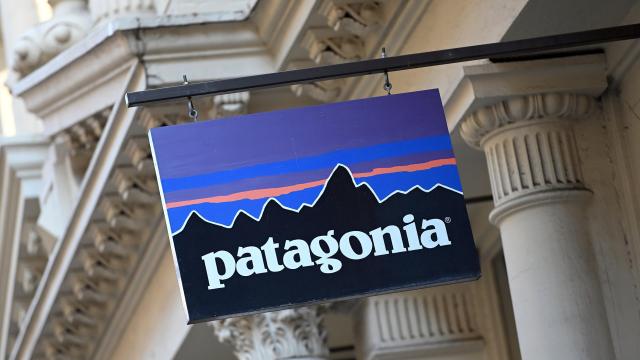The founder of Patagonia said this week in an exclusive interview with the New York Times that he’s giving away his company to support environmental protection. Yvon Chouinard, the rock-climber-turned-businessman who has long pushed his company as the face of progressive corporate environmentalism, told the Times that he wants to “give away the maximum amount of money to people who are actively working on saving this planet.” But even in what seems like a best-case development for green capitalism, there’s some important PR spin to wade through.
Let’s first review what the change actually means for the Chouinard family and the company. The family gave all the nonvoting shares of Patagonia, currently worth about $US3 ($4) billion, to a newly formed nonprofit called the Holdfast Collective; Patagonia will stay a for-profit business, but those profits, which amount to around $US100 ($139) million a year, will now go entirely to this group. A trust now owns the family’s voting shares, which comprise about 2% of the company, and the Chouinard family and its advisers will be in charge of this trust.
“Instead of ‘going public,’ you could say we’re ‘going purpose,’” Chouinard said in a statement on the Patagonia website, which has a flashy section devoted to the announcement titled “Reimagining Capitalism.” “Instead of extracting value from nature and transforming it into wealth for investors, we’ll use the wealth Patagonia creates to protect the source of all wealth.”
While Patagonia may posit itself as “reimagining capitalism,” this particular manipulation of the control of a company has been done before. As Daniel Hemel, a professor at NYU’s School of Law, pointed out on Twitter, businessman Barre Seid used a nearly identical formulation of tax benefit manipulation to transfer $US1.6 ($2) billion to Leonard Leo, the activist who is in part responsible for the successful push to secure a conservative supermajority on the Supreme Court, leading directly to catastrophic environmental decisions like West Virginia vs. EPA.
What’s more, the Patagonia transferral isn’t without some perks to the family — there are some significant tax benefits involved. As Bloomberg pointed out, some of the other options on the table would have meant hefty fees for Chouinard: the sale of the $US3 ($4) billion company could have meant paying more than $US700 ($972) million in capital gains tax, while his heirs would have had to pay some 40% in estate tax if the company were transferred directly to them. As it stands, the deal still costs some $US17.5 ($24) million in gift taxes for Chouinard. That’s a hefty sum, sure, but small potatoes given the other possibilities.
“We are letting people opt out of supporting all the expenses of government to do whatever they want with their money,” Ray Madoff, a professor at Boston College Law School, told Bloomberg. “This is highly problematic from the point of view of democracy, and it can mean a higher tax burden for the rest of Americans.”
We also know next to nothing about the new nonprofit that will receive the funding from Patagonia’s profits. The company said that the Holdfast Collective “will use every dollar received to fight the environmental crisis, protect nature and biodiversity, and support thriving communities, as quickly as possible” — a pretty broad mandate that can mean many different things.
Looking at Chouinard’s own environmental interests and the organisations and causes he has supported could provide some clues. Patagonia has long been recognised as one of the best models of corporate responsibility when it comes to supporting grassroots environmental groups, while Chouinard himself has also been outspoken about the uselessness of billionaires like Jeff Bezos and Elon Musk racing to space (a premise we at Earther agree with).
But some of his chosen causes have been troubling. Last year, Chouinard provided a positive pull quote for a book called Bright Green Lies, which was authored by the three leaders of a radical environmental group called Deep Green Resistance. As Earther reported in February, the group and its leaders not only espouse eco-extremist ideology — including having an anti-civilisation bent — but also have transphobic ideology woven into the roots of their organisation. In April, Politico released an investigation into allegations of transphobia inside the nonprofit Community Environmental Legal Defence Fund; as Politico notes, Patagonia was a supporter of that nonprofit. Earther asked Patagonia for comment on Chouinard’s support for these groups but did not receive a reply by time of publication.
The fact that a nonprofit organisation is not-for-profit does not mean that its activities are automatically noble, useful, or even a net good; I’m curious to see what direction Holdfast Collective chooses to take its giving, and if they’ll avoid some of these very problematic pitfalls.
Chouinard’s public image has long been one of a “reluctant billionaire”: a rock climber entrepreneur who never wanted to be rich. If we’re going to have super-rich people, Chouinard is a far better option than many others. But the way that he is handing off his company must also be recognised as a PR act: as Matt Levine of Bloomberg put it, the way the deal was made “allows Chouinard to say that he ‘no longer owns the company’ and have a New York Times headline saying ‘Billionaire No More,’ which seems to have been an important goal,” while still maintaining a lot of control of the company. We need to ensure we’re keeping an eye on Patagonia’s own new brand of capitalism, as well.
